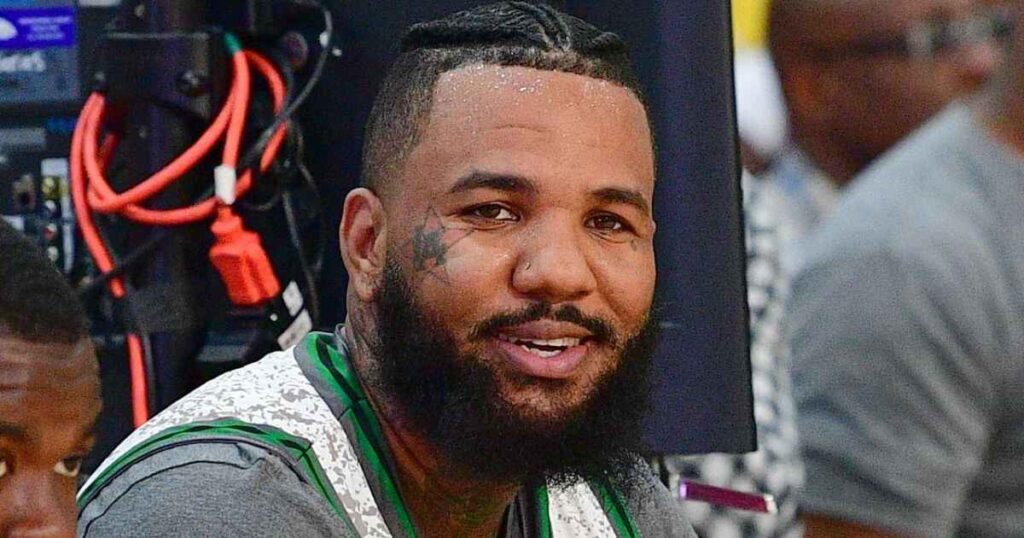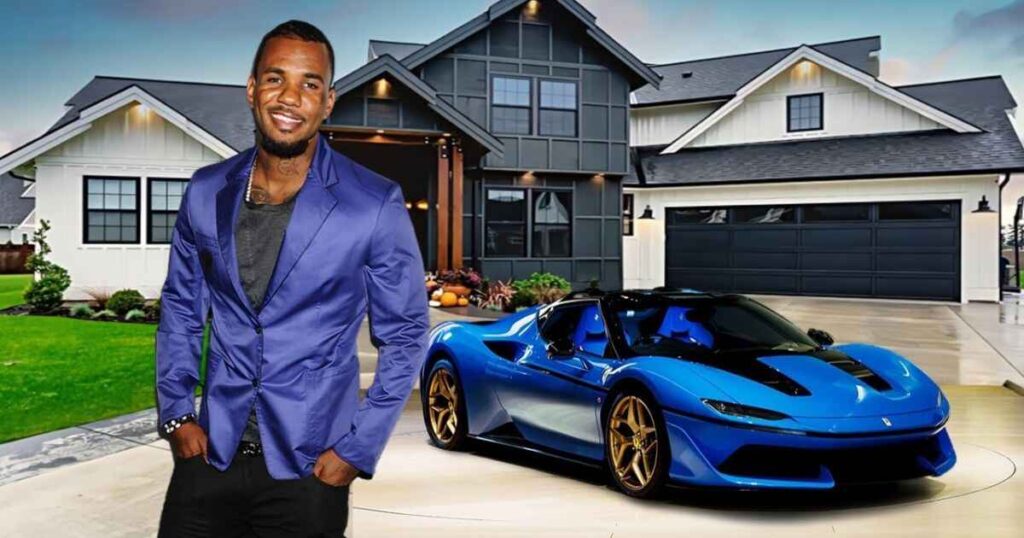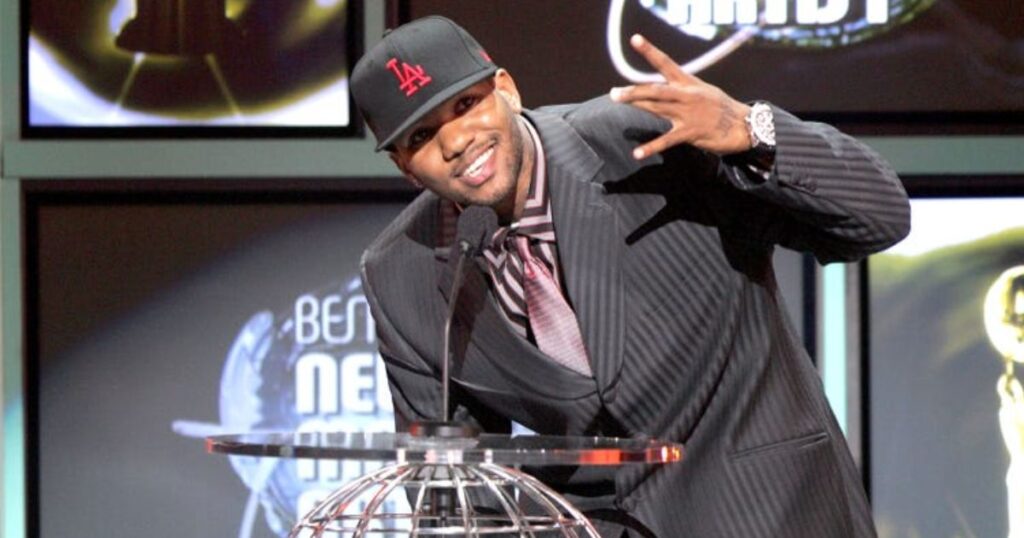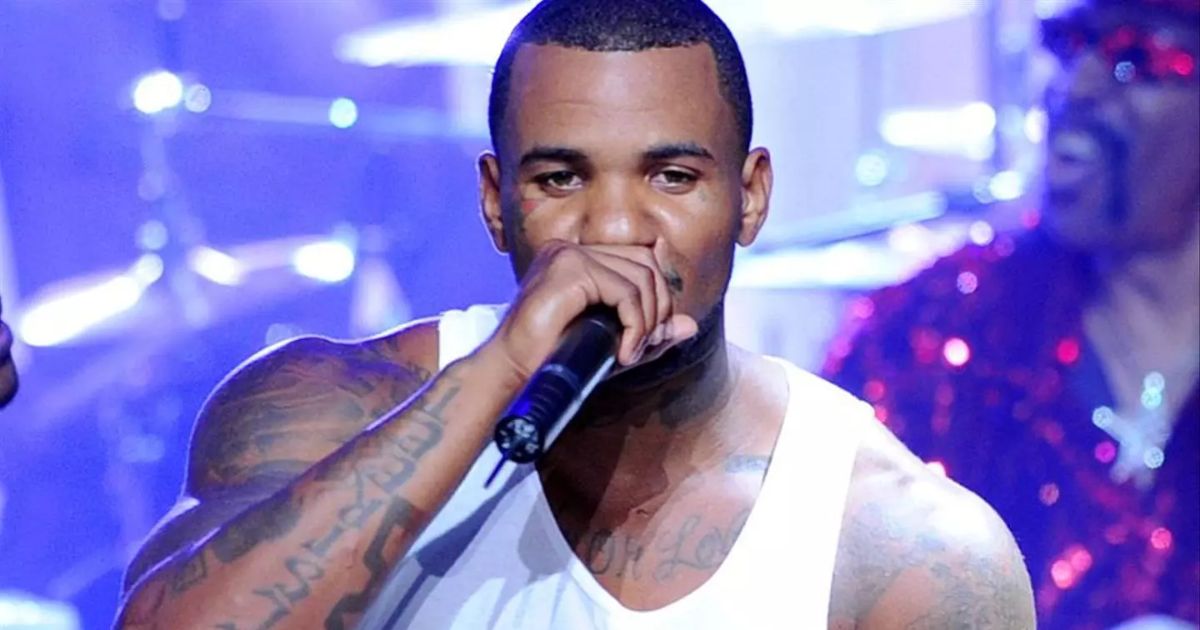What’s rapper The Game net worth in 2025? It sits at approximately $10 million, though the figure tells only half the story. The Game faces a monumental legal battle forcing him to sell his $4 million Calabasas mansion. His 2005 debut album “The Documentary” catapulted him to stardom, selling over 10 million copies worldwide and dominating the Billboard 200. Yet today, a $7.13 million sexual assault lawsuit judgment threatens everything he’s built.
The Game vehemently disputes published net worth figures. He argues his $2 million shoe collection and $5 million home aren’t properly factored into public estimates. The Compton rapper believes he could “easily become a billionaire” with laser focus. But reality paints a harsher picture compensatory damages of $1.13 million and punitive damages of $6 million hang over his empire.
Let’s dive deep into how Jayceon Terrell Taylor rose from Compton’s streets to hip-hop royalty, and why his fortune now hangs in the balance.
Who is The Game?

The Game, born Jayceon Terrell Taylor on November 29, 1979, stands as one of West Coast hip-hop’s most influential voices. This American rapper, producer, and actor emerged from Compton, California’s notoriously tough streets to become a commercial powerhouse.
His association with the Bloods gang during his youth shaped the raw authenticity that defines his music. Dr. Dre discovered his talent after a near-fatal shooting in 2001 transformed Taylor’s life trajectory completely.
The Game’s impact on hip-hop extends far beyond record sales. He bridged the gap between West Coast and East Coast sounds when tensions still simmered.
His collaborations with legends like 50 Cent, Lil Wayne, and Kendrick Lamar cemented his status as a unifying force. Today, he’s not just a rapper he’s a businessman with ventures spanning cannabis, real estate, and entertainment. Yet his journey from gang activity to global stardom carries scars, both literal and financial.
Read This Blog:
Cory Chase Net Worth, Husband, Age, Career, Family, Net Worth, Height Bio 2025
Bio/Wiki
| Category | Details |
| Full Name | Jayceon Terrell Taylor |
| Stage Name | The Game |
| Date of Birth | November 29, 1979 |
| Age | 45 years old (as of 2025) |
| Birthplace | Compton, California, United States |
| Nationality | American |
| Profession | Rapper, Producer, Actor, Entrepreneur |
| Height | 6’4″ (193 cm) |
| Net Worth (2025) | Approximately $10 million |
| Gang Affiliation | Bloods gang (youth) |
| Record Labels | Aftermath Entertainment, G-Unit Records, Roc Nation, Lit Nightz Records |
| Debut Album | “The Documentary” (2005) |
| Notable Albums | “Doctor’s Advocate“, “LAX“, “The R.E.D. Album“, “Jesus Piece“, “Born 2 Rap“ |
| Hit Singles | “How We Do“, “Hate It or Love It“, “Wouldn’t Get Far”, “My Life” |
| Collaborators | Dr. Dre, 50 Cent, Lil Wayne, Kendrick Lamar |
| Acting Credits | “Waist Deep” (2006), “Belly 2: Millionaire Boyz Club” (2006), “Street Kings” |
| Business Ventures | The Reserve (marijuana dispensary), Real estate investments |
| Notable Assets | $2 million shoe collection, $5 million home |
| Legal Issues | $7.13 million sexual assault lawsuit judgment (Priscilla Rainey) |
| Children | Multiple children |
| Genre | West Coast hip-hop, Gangsta rap |
| Years Active | 2001–present |
The Game’s Early Life and Rise to Fame
The Game’s ascent from Compton’s war zones to penthouse suites defies odds. Jayceon Terrell Taylor grew up surrounded by violence, drugs, and poverty. His parents’ struggles with addiction meant foster care became part of his childhood.
Street violence wasn’t just background noise it was daily reality. Taylor ran with the Bloods gang, a decision that nearly cost him everything. Yet these harsh experiences forged the storytelling prowess that makes his music resonate authentically.
The 2001 shooting changed everything. Five bullets tore through his body, leaving him clinging to life. During recovery, Taylor consumed hip-hop voraciously Tupac, Biggie, Nas, Jay-Z. He studied flows, dissected lyrics, and crafted his own style.
Friends noticed his talent, encouraging him to pursue music seriously. Local buzz grew until Dr. Dre himself took notice. The legendary producer saw something special raw talent mixed with street credibility that couldn’t be manufactured. The Game was about to explode onto the scene.
Growing up in Compton
Compton, California wasn’t just The Game’s hometown it was his university. This notorious city taught survival lessons textbooks can’t convey. Taylor’s neighborhood experienced constant gang activity between Bloods and Crips. Gunshots punctuated nights regularly. He witnessed friends die young and families torn apart by violence.
His mother and father battled substance abuse, leaving young Jayceon to navigate chaos largely alone. Foster homes became temporary refuges, though instability remained constant.
Breakthrough with ‘The Documentary’
The Documentary hit stores in January 2005 like a sonic earthquake. Dr. Dre’s production gave it platinum polish while maintaining street edge. Singles “How We Do” and “Hate It or Love It” dominated radio, with the latter featuring 50 Cent becoming an instant classic.
The album debuted at #1 on the Billboard 200, moving 586,000 copies in its first week. Critics praised The Game’s ability to channel Tupac’s raw emotion while carving his own lane. Over 10 million copies sold worldwide, establishing him as a commercial powerhouse who could move units while maintaining credibility.
Original financial success
The Documentary’s explosive reception translated into serious money. The Game’s contract with Aftermath Entertainment and G-Unit Records included substantial advances and royalty structures. Early estimates placed his earnings from the debut album alone in the multi-million range. Touring became lucrative immediately concert venues sold out across North America.
Merchandise sales added another revenue stream as fans clamored for branded gear. This initial windfall gave Taylor financial freedom he’d never experienced, allowing him to invest in real estate and other ventures. His business acumen surprised industry veterans who expected just another flash-in-the-pan rapper.
How Music Built The Game’s Net Worth

Music remains The Game’s financial backbone despite diversification. His catalog generates consistent passive income through streaming platforms and royalties. Unlike many artists who peak early, The Game maintained relevance across two decades.
He adapted when the industry shifted from physical sales to digital consumption, ensuring his revenue streams didn’t dry up. Smart album release strategies and relentless work ethic kept him in the conversation even as trends changed.
The Game’s approach to music as business separates him from peers. He understood early that touring often outearns album sales since artists keep larger percentages. His collaborations with high-profile artists weren’t just creative they were strategic moves expanding his audience.
Building an extensive catalog meant long-term royalty payments would provide income for decades. While some rappers chase quick hits, The Game constructed a sustainable empire. His net worth reflects calculated decisions as much as raw talent.
Also Read This Blog:
Nicki Minaj Net Worth 2025: Inside The Queen of Rap’s 9 Figure Empire
Album sales and chart performance
The Game’s discography reads like a Billboard 200 domination clinic. After “The Documentary” conquered charts, his 2006 follow-up “Doctor’s Advocate” hit #1 despite leaving G-Unit Records. “LAX” (2008) and “The R.E.D. Album” (2011) both peaked at #2, proving his commercial appeal remained intact. “Jesus Piece” (2012) debuted atop charts again.
Even his final album “Born 2 Rap” (2019) performed respectably in an era dominated by streaming. This consistency over 15 years created a reliable revenue stream that added substantially to The Game’s net worth.
Collaborations and tours
The Game’s strategic collaborations with legends amplified his reach exponentially. Working with Dr. Dre legitimized him immediately. His partnership with 50 Cent on “Hate It or Love It” became one of hip-hop’s most celebrated duets. Later collaborations with Lil Wayne, Kendrick Lamar, and others kept him relevant across generations.
These mutually beneficial alliances boosted album sales and streaming numbers significantly. Live performances brought in massive money concert tours across North America, Europe, and Australia consistently sold out venues. Artists typically earn more from touring than recorded music since they don’t split profits with labels as heavily, making this a major contributor to his wealth.
Royalties and streaming revenue
The Game adapted brilliantly when music went digital. His extensive catalog generates passive income through Spotify, Apple Music, YouTube, and other streaming platforms. Earlier hits, especially tracks from “The Documentary“, remain popular among hip-hop fans and deliver steady royalty payments.
These ongoing earnings provide regular income beyond new album releases. Streaming changed the game pun intended but artists with deep catalogs benefited most. Every play generates micro-payments that add up substantially over time. This serves as another key component of his financial portfolio, ensuring money flows even between project releases.
Beyond Music: Acting, Business, and Investments
The Game recognized early that rapper careers have shelf lives. He diversified aggressively, building multiple income streams through entertainment and business ventures. This strategy significantly boosted his net worth beyond what music alone could provide.
His acting roles, marijuana dispensary ownership, and real estate investments show business sophistication often lacking in hip-hop. While peers blew fortunes on jewelry and cars, Taylor invested though his $2 million shoe collection suggests he didn’t completely resist temptation.
These ventures beyond music demonstrate The Game’s entrepreneurial mindset. He didn’t just lend his name to projects he took active roles in development and management. His cannabis business philosophy emphasized doing things properly rather than chasing quick profits.
Real estate provided tangible assets that appreciate over time. These calculated moves should have protected his wealth, making his current financial troubles especially ironic. Smart investments mean little when legal judgments force asset liquidation.
Film and TV appearances
The Compton rapper’s acting portfolio stretches back to the mid-2000s. His film credits include “Waist Deep” (2006) and “Belly 2: Millionaire Boyz Club” (2006). Television work expanded his reach beyond music fans “Street Kings,” “Tournament of Dreams,” and “The Late Late Show With Craig Ferguson” showcased different sides of his personality.
The Game expanded his entertainment footprint by serving as executive producer for “The Game: Life After the Math” and writer for “The Monkey and the Mouth”. These roles created steady income streams throughout his career, though they never approached his music earnings.
Marijuana dispensary and other ventures
The Game made a bold move in 2016 by co-owning The Reserve, a licensed medical marijuana dispensary in Santa Ana, California. This investment marked him as “the first celebrity to partner with this sort of establishment in the state of California.”
He didn’t just lend his name Taylor took an active role in product development, creating his own branded cannabis strains for traditional cigarettes and drinks. He shared his business philosophy: “I felt a responsibility to my family, and the rest of the cannabis community, to do this the right way.”
This venture positioned him ahead of the curve as cannabis legalization spread nationwide.
Shoe collection and real estate
The Game’s impressive shoe collection stands out, valued at approximately $2 million by his own estimation. This passion reflects the booming sneaker market where collectors pay astronomical sums for rare footwear Michael Jordan’s game-worn sneakers sold for $8 million at auction.
The rapper’s wealth-building strategy extends to property investments. While specific details remain private, he’s mentioned owning a $5 million home that suggests substantial real estate holdings beyond his music career. These tangible assets should have provided financial security, though legal troubles complicated that equation considerably.
Controversies, Lawsuits, and Financial Setbacks

“I don’t believe in, like, saving your money. Like for what?” The Game (Jayceon Terrell Taylor), American rapper, pivotal figure in West Coast hip-hop
The Game’s successful music career and business ventures haven’t shielded him from catastrophic financial challenges. A massive lawsuit devastated his net worth and forced him to liquidate prized assets. His quote about not saving money haunts him now as legal bills pile up.
The Priscilla Rainey judgment represents every high-earning celebrity’s nightmare one case wiping out years of wealth accumulation. The Game stubbornly refuses to pay, but courts don’t negotiate. His defiance on social media makes headlines but doesn’t stop asset seizures.
These legal troubles illustrate how quickly substantial wealth evaporates through forced sales and royalty garnishments. The Game tried protecting his property through JTT Holdings, a company he had equity in, and California’s homestead exemption.
Courts saw through these strategies, ruling JTT Holdings was just a shell company. His remaining $3 million debt will shadow his finances for years. High-earning celebrities need meticulous planning to protect assets from potential risks a lesson The Game learned expensively.
The $7 million Priscilla Rainey judgment
The Game’s biggest legal nightmare began in 2015. Priscilla Rainey, who appeared on his VH1 reality show “She’s Got Game,” filed a sexual assault lawsuit against him. She claimed the rapper touched her inappropriately during production.
The Game strongly denied these claims on social media but never showed up for the 2016 trial or related hearings. Courts don’t tolerate absence lightly they issued a default judgment. Rainey won $7.13 million $1.13 million as compensatory damages and $6 million in punitive damages.
The Game refuses to pay, lashing out on Instagram in 2020: “People out here dying from the rona n blogs out here creating false narratives for this Waffle House roach who doing anything her thirsty a## can to try n take money from me.” Rainey won’t give up, hiring private investigators to track The Game’s assets.
Seizure of Calabasas mansion
The rapper’s refusal to pay led a California judge to order his Calabasas mansion’s sale to cover the judgment. The Game tried protecting his property by claiming JTT Holdings owned it. He also attempted using California’s homestead exemption. Courts saw through this strategy, ruling JTT Holdings was just a shell company.
The property boasts four bedrooms and five baths, with current value around $4 million. This doesn’t cover the full $7.13 million judgment. Rainey has already collected nearly $400,000 from The Game’s music royalties. The court-ordered sale proves his financial strain is real, not exaggerated by media. Forced liquidation of primary residences signals serious trouble.
Impact on The Game rapper net worth
These legal troubles ate away at The Game’s wealth systematically. The forced sale of his Calabasas home, one of his main assets, dealt a severe blow to his net worth. The remaining $3 million debt will haunt his finances for years. Royalty garnishments mean money he earns from streaming and album sales goes directly to Rainey before reaching him.
This creates a crushing cycle he must work harder to maintain lifestyle while earning less from each project. Legal troubles demonstrate how quickly substantial wealth disappears through forced sales and judgments. His situation warns other high-earning celebrities about protecting assets through proper legal structures and, more importantly, avoiding situations that lead to lawsuits.
Social Media Presence
The Game dominates social media with unfiltered authenticity that fans love. His Instagram account boasts millions of followers who tune in for controversial takes, behind-the-scenes studio footage, and family moments. He doesn’t hold back whether celebrating victories or ranting about perceived disrespect.
This raw approach built a loyal following that engages consistently. The Game understands social media’s power for maintaining relevance between album releases. He promotes touring dates, new music drops, and business ventures directly to fans.
His social media presence cuts both ways. While it keeps him connected to audiences, it’s also caused problems. His comments about the Priscilla Rainey case on Instagram didn’t help his legal situation. He’s feuded publicly with other rappers, sometimes reigniting beefs better left buried.
Yet this controversy drives engagement fans share his posts widely, keeping The Game trending regularly. In today’s music industry, social media presence directly impacts streaming numbers and concert ticket sales. The Game’s mastery of these platforms helps maintain his $10 million net worth despite financial setbacks.
Must Be Read This Blog:
50 Cent Net Worth: The Untold Story Behind His $60 Million Empire
Hobbies
Beyond music and business, The Game pursues passions that reveal his personality. His legendary shoe collection isn’t just investment it’s genuine obsession. He regularly posts rare sneaker acquisitions, connecting with fellow collectors worldwide.
The $2 million collection includes limited editions that appreciate in value, blending hobby with smart investing. Basketball remains close to his heart he plays regularly and follows the NBA religiously. Growing up, he dreamed of professional basketball before hip-hop called.
The Game also dedicates time to mentoring young artists from Compton. He understands how street violence and gang activity trap talented kids, so he invests energy helping them escape that cycle. His work with community organizations flies under the radar compared to his controversies. Family time ranks high too despite his complicated relationships, he prioritizes his children.
These hobbies and activities paint a fuller picture than tabloids suggest. The Game isn’t just a controversial rapper with legal problems he’s a multifaceted person balancing fame, fatherhood, and passion projects.
Conclusion
The Game’s journey from Compton’s streets to hip-hop royalty proves talent conquers everything. His $10 million net worth in 2025 tells a gripping tale massive success mixed with brutal setbacks. Despite the $7.13 million lawsuit draining his wealth, The Game’s legacy in West Coast hip-hop remains untouchable. “The Documentary” still earns royalties, and his cannabis ventures show real promise.
This article revealed the complete truth behind The Game’s fortune the triumphs, controversies, and financial battles shaping his empire. From Billboard 200 domination to Calabasas mansion seizures, we’ve covered it all. His story teaches crucial lessons about protecting wealth while building it. The Game’s resilience might just spark his biggest comeback yet.
FAQs
What is The Game’s estimated net worth in 2025?
The Game’s net worth stands at approximately $10 million in 2025, though the rapper claims this figure doesn’t accurately reflect his true wealth when factoring in his $2 million shoe collection and $5 million home.
What was The Game’s breakthrough album?
The Game’s breakthrough came with his 2005 debut album “The Documentary,” which sold over 10 million copies worldwide and debuted at #1 on the Billboard 200 chart. The album featured hit singles “How We Do” and “Hate It or Love It.”
How has The Game diversified his income beyond music?
The Game expanded his income through acting in films and TV shows, co-owning a marijuana dispensary called The Reserve in Santa Ana, California, and investing in real estate. He also maintains a valuable shoe collection worth $2 million.
What major legal issue has impacted The Game’s finances?
The Game faces a $7.13 million judgment from a sexual assault lawsuit filed by Priscilla Rainey, which led to the court-ordered sale of his Calabasas mansion and garnishment of his music royalties. The judgment includes $1.13 million in compensatory damages and $6 million in punitive damages.
How has The Game’s net worth been affected by his legal troubles?
The legal judgment significantly impacted The Game’s finances, forcing him to sell his $4 million Calabasas home and potentially eroding a substantial portion of his net worth. He still owes approximately $3 million after the property sale, with ongoing royalty garnishments affecting his income.
Who discovered The Game and signed him?
Dr. Dre discovered The Game after his near-fatal shooting in 2001 and signed him to Aftermath Entertainment. He was also signed to G-Unit Records, creating a rare dual-label deal that launched his career.
What albums has The Game released throughout his career?
The Game released multiple successful albums including “The Documentary” (2005), “Doctor’s Advocate” (2006), “LAX” (2008), “The R.E.D. Album” (2011), “Jesus Piece” (2012), and “Born 2 Rap” (2019). Most debuted in top positions on the Billboard 200.
Where did The Game grow up?
The Game grew up in Compton, California, where he was exposed to gang activity, street violence, and family dysfunction. His association with the Bloods gang and tough upbringing shaped his authentic lyrics and storytelling ability.

